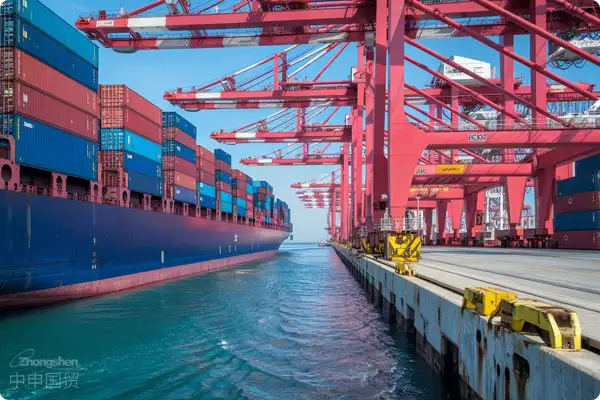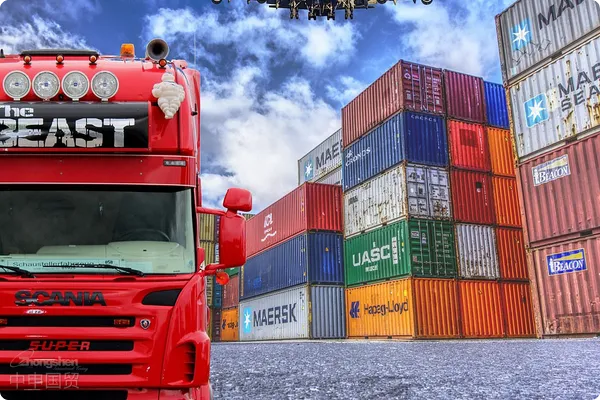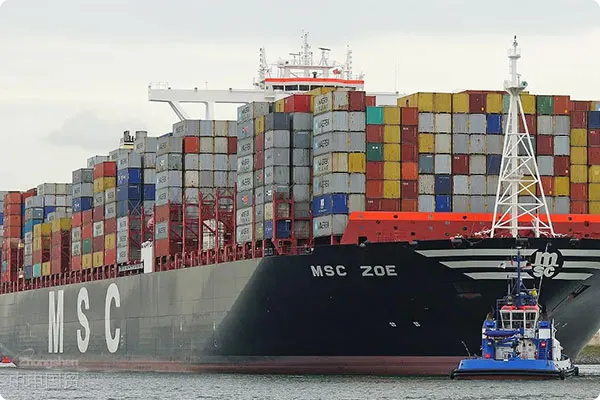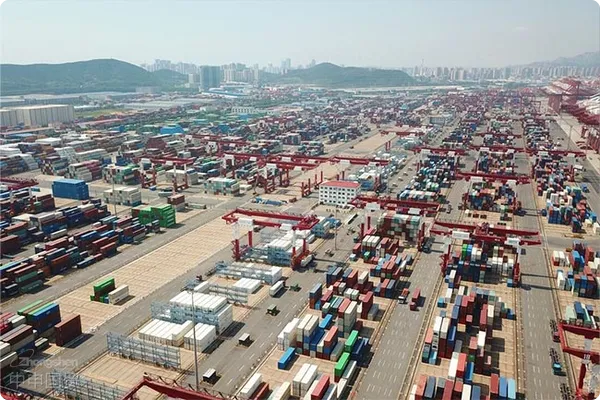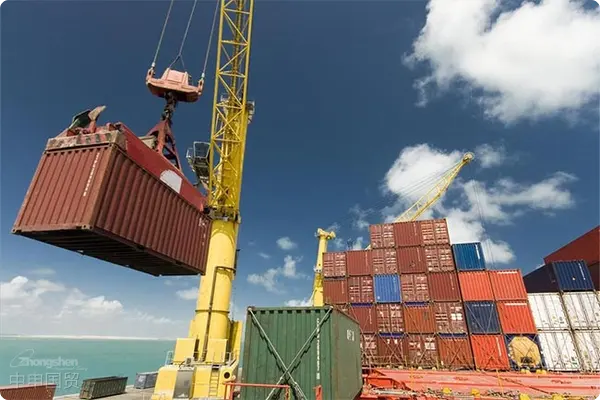- Shanghai Zhongshen International Trade Co., Ltd. - Two decades of trade agency expertise.
- Service Hotline: 139 1787 2118
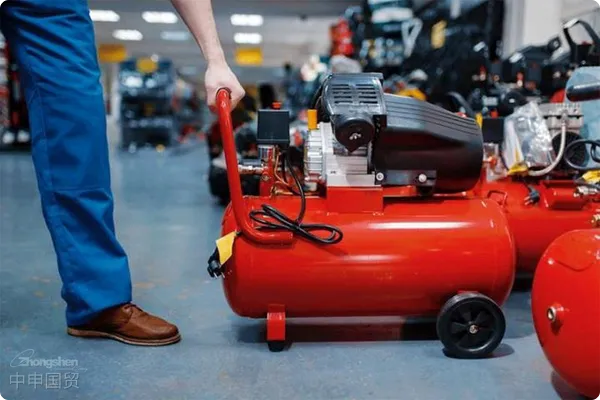
This article introduces the air compressor export agency industry and elaborates on the operational process, covering contract signing, cost control, tracking management, and compliance considerations.
With global economic development, the export demand for air compressors, as an important industrial equipment, continues to grow. According to industry reports, the global air compressor market has been expanding steadily in recent years and is expected to maintain this growth trend in the coming years.
Air compressor export agency refers to the business where agents represent exporters to sell air compressor products in foreign markets. Acting as a bridge between exporters and overseas buyers, air compressor export agents require extensive industry experience, professional knowledge, and strong communication skills.
I. Operational Process of Air Compressor Export Agency
1. Finding the Right Agent: Exporters need to find an agent with extensive experience and a good reputation. Both parties can clarify their rights and obligations by signing an agency contract.
- Example: When searching for an agent, an exporter used online searches and trade shows to eventually select an agent with rich experience in the target market. The two parties signed an agency contract specifying the agents sales territory, sales targets, commission rates, and other details.
2. Understand the target market: Agents need to thoroughly understand the target markets demand, competition, and legal regulations to formulate effective sales strategies.
- Example: When studying the target market, agents can conduct market research and communicate with local clients to understand the demand characteristics, price sensitivity, and competitor landscape for air compressor products. They must also ensure compliance with local laws and regulations.
3. Formulating Sales Strategies: Based on the target market, agents need to develop appropriate sales strategies, including product positioning, pricing strategies, and promotional activities.
- Example: When formulating sales strategies, agents can position air compressor products as high-quality, high-performance offerings tailored to local market needs. They can also enhance product visibility and reputation by participating in local trade shows and organizing promotional events.
4. Finding Potential Customers: Agents need to identify potential customers through various channels, including online searches, attending trade shows, and collaborating with local distributors.
- Example: When searching for potential customers, agents can gather local customer information through online searches and participation in local trade shows. Additionally, agents can partner with local distributors to jointly explore the market and identify potential clients.
5. Communication with Customers: Agents must communicate with potential customers to understand their needs and intentions, while introducing the features and advantages of air compressor products.
- Example: During customer communication, agents can use phone calls, emails, or face-to-face meetings to understand client requirements. Agents should also highlight the products strengths, such as energy efficiency, reliability, and user-friendly operation, to capture customer interest.
6. Sign the Contract: If customers show interest in air compressor products, agents must sign contracts with them to clarify rights and obligations for both parties.
- Example: When signing contracts, agents must specify terms and conditions, including product pricing, delivery timelines, payment methods, and quality guarantees. Agents should also negotiate solutions for potential issues like quality concerns or delivery delays.
7. Arranging Shipment: Agents must arrange shipments according to contract requirements, including selecting appropriate transportation methods and handling customs clearance procedures.
- Example: When arranging shipments, agents must choose suitable transportation methods (e.g., sea or land freight) based on customer requirements. Additionally, agents must complete customs clearance to ensure smooth export of goods.Maritime Transportation,Air Transportation: Agents must track order execution and promptly resolve any issues to ensure timely delivery to customers.
8. : The agent needs to track the execution of the order to ensure that the bearings can be delivered to the customer on time. When tracking the order, the agent needs to communicate with the supplier and the customer in a timely manner to solve possible problems.Example: Agents can monitor order progress through customer communication and coordination with logistics providers. If issues arise, agents must negotiate solutions with customers to guarantee on-time delivery.
- : Agents must provide after-sales services, including product installation, debugging, and maintenance.
9. After - sales ServiceExample: For after-sales services, agents can communicate with customers and dispatch technicians to offer timely, professional support. Agents should also maintain service records to better address customer needs.
- II. Key Considerations for Air Compressor Export Agency
: Before signing agency agreements, exporters and agents must carefully review contract terms to ensure mutual benefits. Contracts should specify agent rights/obligations, sales territories, targets, commission rates, and liability for breaches.
1. Contract signingContract Parties: Exporter and Agent
- Territory: Clearly define the agents sales region to avoid overlaps.
- Example of a detailed framework of contract content:
- Term: Specify the contract duration to prevent excessively long or short agreements.
- Sales Targets: Define sales goals to evaluate agent performance.
- Commission Rate: Clarify commission percentages for fair profit distribution.
- Liability: Outline breach responsibilities to resolve issues promptly.
- : Air compressor export agencies must control costs, including procurement, logistics, and tariffs. Agents should negotiate favorable purchase and shipping rates with exporters. They must also understand target market tariff policies and optimize customs procedures to reduce costs.
2. Cost controlCost Control Example: An agent secured better purchase prices through supplier negotiations and partnered with a reliable logistics provider to cut shipping costs. By studying tariff policies, the agent optimized customs clearance to minimize duties.
- Considerations: Agents should negotiate better purchase/shipping terms with exporters and study tariff policies to streamline customs processes and reduce costs.
- Order Tracking
3. : Air compressor export agents must track orders to monitor execution. Agents can implement tracking systems to oversee order status and address issues proactively.Tracking Example: An agent developed an order tracking system to monitor real-time status. The system alerts agents to problems, enabling quick resolutions. It also facilitates customer communication to improve satisfaction.
- Considerations: Agents should establish robust tracking systems to manage orders efficiently and maintain open communication with customers to enhance satisfaction.
- Notes: Agents need to establish a comprehensive order tracking system to monitor the status of orders in real time and promptly resolve any potential issues. At the same time, agents must maintain good communication with customers to understand their needs and feedback, thereby improving customer satisfaction.
4. Compliance Considerations: Exporting air compressor agents need to comply with relevant laws and regulations, including export licenses, quality certifications, environmental requirements, etc. Agents must understand the legal framework of the target market to ensure their operations meet local legal requirements.
- Example of Compliance Considerations: An agent exporting air compressor products needed to obtain an export license. The agent proactively researched the relevant laws and followed the proper procedures to secure the license. Additionally, the agent conducted quality certification for the air compressors to ensure compliance with local quality standards. Environmental measures were also implemented to meet local environmental regulations.
- Key Points: Agents must understand the legal framework of the target market to ensure compliance with local requirements. They should also conduct quality certification for air compressor products to meet local standards. Environmental compliance measures must be taken to adhere to local regulations.
In summary, exporting air compressors as an agent is a complex business requiring extensive industry experience, specialized knowledge, and strong communication skills. The operational process involves finding suitable agents, understanding the target market, developing sales strategies, identifying potential clients, negotiating contracts, arranging shipments, tracking orders, and providing after-sales service. Key considerations include contract signing, cost control, tracking management, and compliance. Only by addressing these aspects effectively can agents successfully operate in the air compressor export business.
Related Recommendations
? 2025. All Rights Reserved. Shanghai ICP No. 2023007705-2  PSB Record: Shanghai No.31011502009912
PSB Record: Shanghai No.31011502009912
